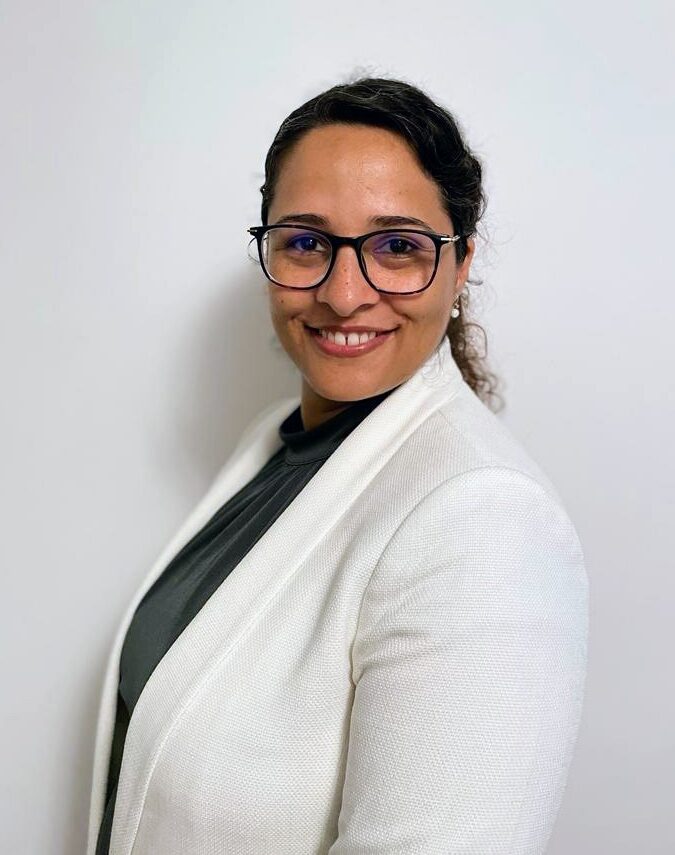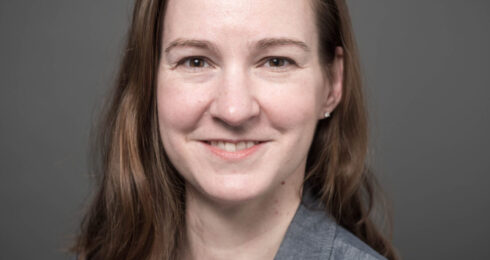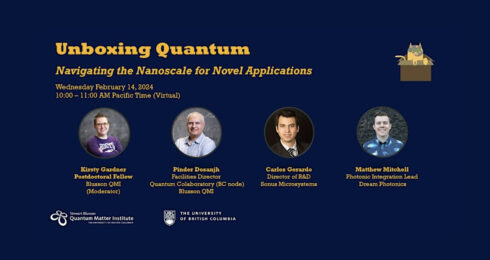
Pictured/credit: Adan Azem.
Adan Azem is a PhD student in the Department of Electrical and Computer Engineering at the University of British Columbia and a well-rounded rising star in the Canadian quantum computing scene. For the past seven months she has been working with the low-temperature team at Xanadu, a Canadian quantum computing company. Azem’s expertise bridges physics and electrical engineering, and her curiosity has taken her from nanofabrication to the design and characterization of superconducting devices for single-photon detection.
Azem’s QuEST-funded research at UBC has primarily focused on the design, development, and characterization of superconducting nanowire single-photon detectors for the near-infrared (IR) and mid-IR range. Co-supervised by Lukas Chrostowski and Jeff Young, Azem is developing a waveguide integrated detector that could potentially be integrated into a range of quantum information processing applications. She will eventually deploy her single-photon detectors to support an architecture proposed by Robert Raussendorf, postdoctoral fellow Andreas Pfenning, and fellow PhD student Xiruo Yan.
“Our detectors are usually operated in the near-IR regime but for this project, we have been working on pushing their spectral range to the mid-IR regime,” said Azem. “Currently, many of us are working on the architecture which we hope will lead to realizing spin qubits in a silicon photonics platform.”
Azem was always fascinated by exploiting material properties to develop new useful devices, and so she enrolled in the Quantum BC-led NSERC CREATE program in Quantum Computing to learn more about quantum computing hardware. The CREATE program requires participants to complete an eight-month industry-based internship.
“David Weekes introduced me to the hardware team leader at Xanadu, but it was clear to me that I wanted to join the low-temperature team to work on a different type of superconducting single-photon detectors. The team has been very supportive.”
Azem credits last year’s QSciTech-QuantumBC Virtual Workshop: Superconducting Circuits and Qubits with helping her get in the right mind frame to take on her opportunity with Xanadu.
“My project focuses on superconducting electronics used as a readout for Xanadu’s detectors, I’m learning a lot from the team and developed lots of new technical skills,” said Azem. “The workshop from QSciTech, QuantumBC, and CMC Microsystems gave me a good foundation, which helped me to write the research proposal that enabled the funding for the internship.”
At Xanadu, Azem is helping to produce a useful and scalable quantum computer, particularly focused on the readout electronics of photon number-resolved detectors.
“The fact that you have just one detector working is amazing, but how do you scale it up to, say, 10,000 detectors? It’s a complex problem with major engineering considerations, and it’s very interesting!” Azem said.
In many ways, the CREATE Program in Quantum Computing has been a stepping stone for Azem. The program is academically interesting, and students in the program have access to courses and expertise from not just UBC, but the University of Victoria and Simon Fraser University as well.
“Initially, I was interested in the CREATE Program because I wanted to be more involved in the quantum computing community in British Columbia,” said Azem. “The resources in the program are amazing, and also I love the fact that they made streams for both hardware and software, so you can choose what you want to focus on.”
In addition to an academic experience tailored to students’ interests, the program offers important scientific and soft skills training, as well as opportunities for mentorship and career development through internships.
For Azem, opportunities abound. Acknowledging the mentorship and support she has received as a first-generation student, she is committed to lifting others up too: she supports women in science, technology, engineering, and math (STEM) through a non-profit dedicated to supporting Arab women in science; since 2019, she has volunteered with the Society for Canadian Women in Science and Technology (SCWIST) as an e-mentor. She is currently mentoring a Grade 10 student interested in pursuing education in STEM.
“The support and mentorship I have received have really helped me to establish my direction,” said Azem. “I believe in the continuity of giving and taking, so I give back as much as I can.”


